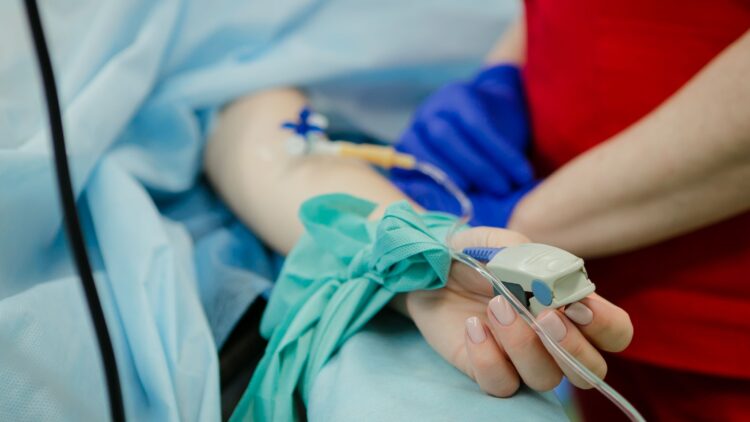What happens when you die?
This is a maddening question, as it’s something we’d all desperately like to know, but there will likely never be a satisfying answer.
However, new research gives us a tantalizing glimpse of what happens just before we die.
Does life flash before our eyes?

This is a common trope, and it’s something reported by people who’ve come close to death but survived: a flood of memories, from early childhood to the present day, passing through the mind in a span of seconds.
What might be the reason for this?

I read somewhere that a likely explanation was that it was the brain’s way of trying to find a way to survive. Basically, it accesses every memory it has in the hope that some memory will help you escape your current predicament.
New research gives us a possible answer.

A study published this month in Frontiers in Aging Neuroscience gives us new details on what happens in the brain in the moments before death.
Brain activity was measured in a dying patient.

“We measured 900 seconds of brain activity around the time of death and set a specific focus to investigate what happened in the 30 seconds before and after the heart stopped beating,” reported lead study author Dr. Ajmal Zemmar, a neurosurgeon from the University of Louisville.
The measured brain waves showed some interesting characteristics.

Rather than standard brain activity, the brain waves — specifically known as oscillations — took on a few different forms. Even though the host body was dying, the brain was very active right around the time of death.
What was the nature of the brain activity?

While technology doesn’t allow us to show the specific thoughts, it can show us the type of brain oscillations. The observed oscillations were consistent with high-cognitive brain functions, like concentrating, dreaming, information processing, and memory retrieval.
In short, the brain waves were consistent with the brain waves of someone experiencing memory flashbacks.
What’s it all mean?

The study refers to these observations as a “source of hope,” and that appears to be accurate. It’s the first study of this kind in humans, but similar activity has been observed in lab rats. It certainly appears likely that there’s a biological response to death that includes accessing memories.
It’s all from observations of one person.

The researchers just happened to have the patient in question, who had epilepsy, hooked up to electroencephalograph (EEG) equipment to monitor seizures when he had a sudden, fatal heart attack.
It’s important to keep this limitation in mind, as the nature of this study would make it difficult to carry out on a wider scale. Still, it appears to confirm the experiences reported by countless people who have come close to death but survived.
It’s comforting.

Anyone who’s watched a family member die knows how profoundly upsetting it can be.
“Something we may learn from this research is: although our loved ones have their eyes closed and are ready to leave us to rest, their brains may be replaying some of the nicest moments they experienced in their lives,” said Zemmar.
Will we ever know what happens after we die?

We’ll all die, and when that happens we should know whether there’s an afterlife or simply oblivion. Until that time, though, it seems like we’ll never know for sure what happens after death. Still, this study offers some fascinating data on what happens just before death.
Let us know your thoughts in the comments.

We want to hear from YOU so we can serve you better. Complete this quick survey and you will be entered to win a grand prize of $2,000, or a chance to win one of 10 Diply prize-packs!

















































